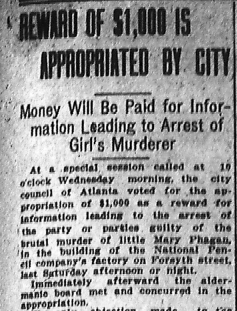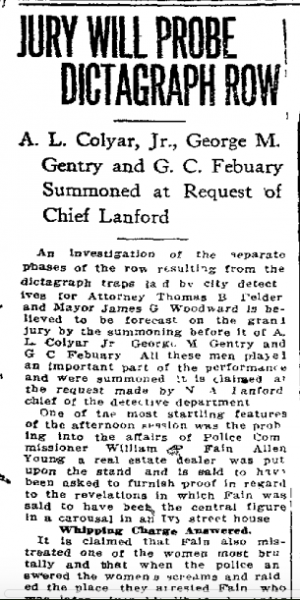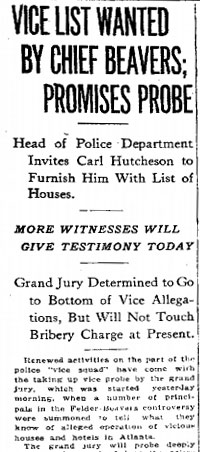 Another in our series of new transcriptions of contemporary articles on the Leo Frank case.
Another in our series of new transcriptions of contemporary articles on the Leo Frank case.
Atlanta Journal
Wednesday, April 30th, 1913
Money Will Be Paid for Information Leading to Arrest of Girl’s Murderer
At a special session called at 10 o’clock Wednesday morning, the city council of Atlanta voted for the appropriation of $1,000 as a reward for information leading to the arrest of the party or parties guilty of the brutal murder of little Mary Phagan. In the building of the National Pencil company’s factory on Forsyth street, last Saturday afternoon or night.
Immediately afterward the aldermanic board met and concurred in the appropriation. Continue Reading →

![J. M. Gant [sic], who was arrested at Marietta and brough[t] to Atlanta Monday, charged with the death of Mary Phagan. [Gantt was in the factory on the Saturday of the murder to pick up a pair of shoes he had left since leaving the Pencil company. Leo M. Frank was very reluctant to let him inside the building. Originally, Frank's behavior towards Gantt was assumed to be because of Gantt's recent firing, even though there were no bad relations between the two -- Ed.]](https://www.leofrank.org/wp-content/uploads/2016/03/State-Offers-Two-Hundred-Dollar-Reward-300x514.png)
 Another in
Another in  Another in
Another in  Another in
Another in  Another in
Another in  Another in
Another in  Another in
Another in  Another in
Another in  Another in
Another in 
 Another in
Another in  Another in
Another in  Another in
Another in  Another in
Another in  Another in
Another in 


